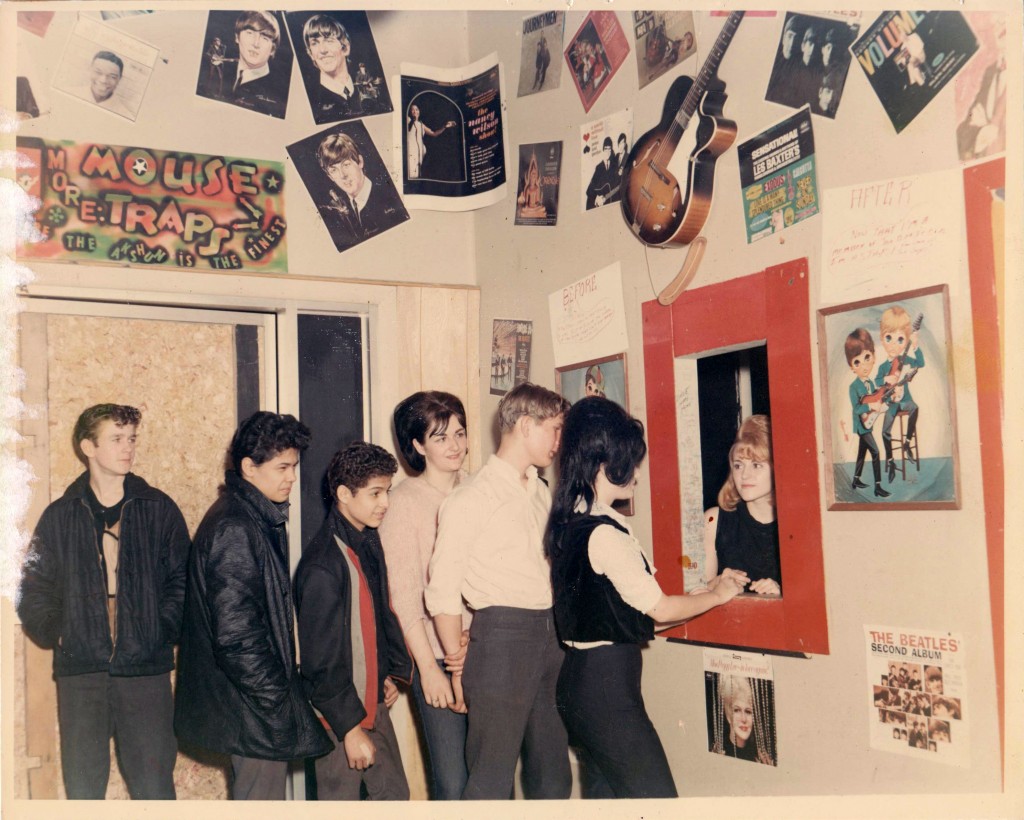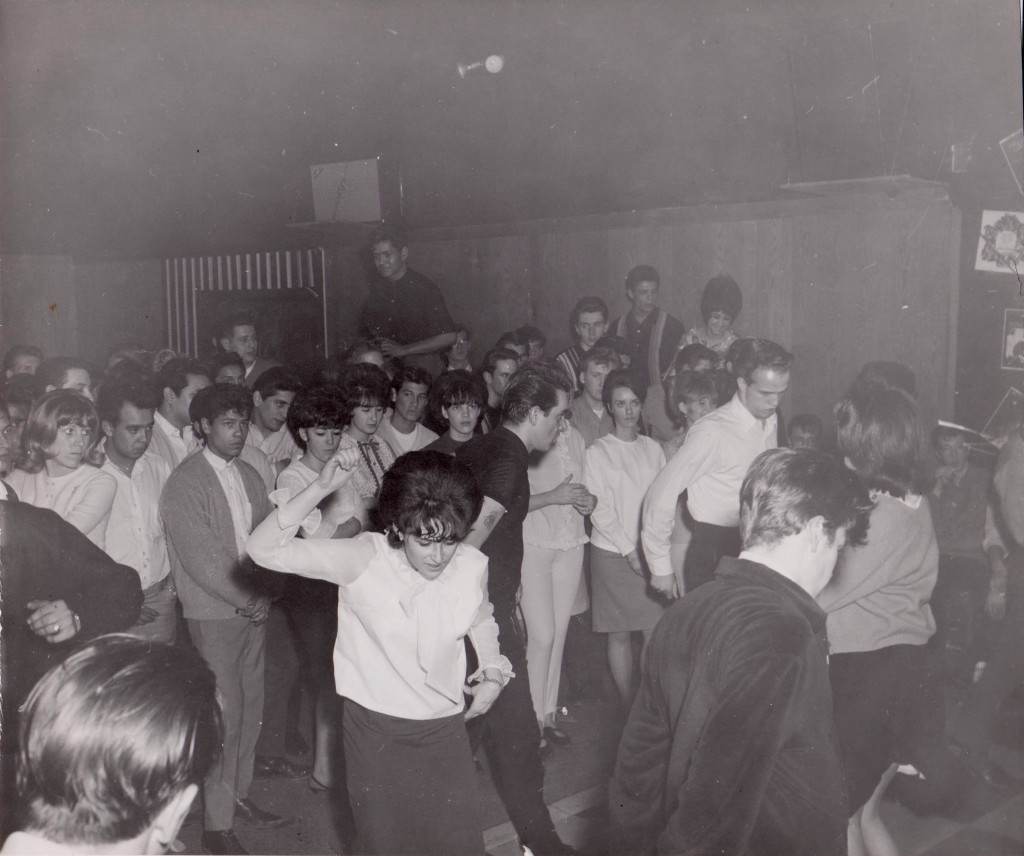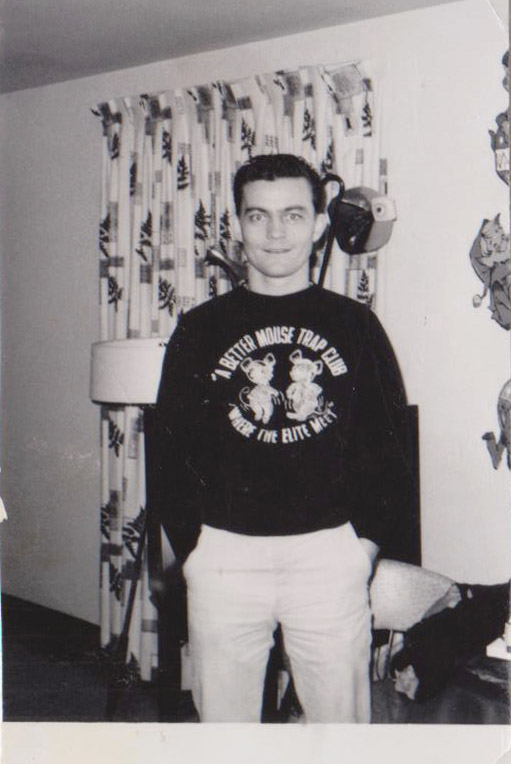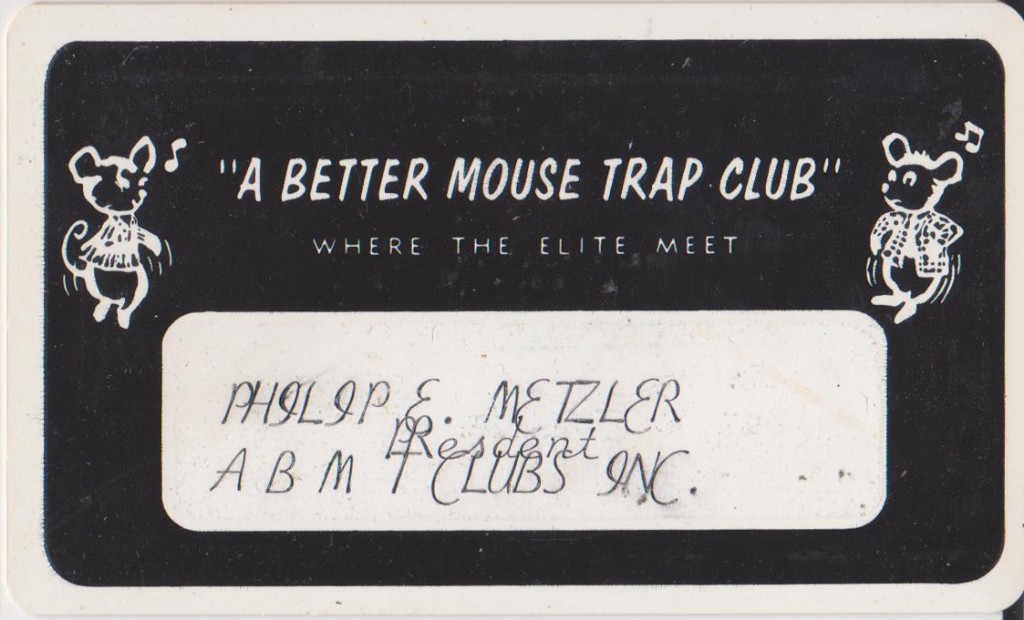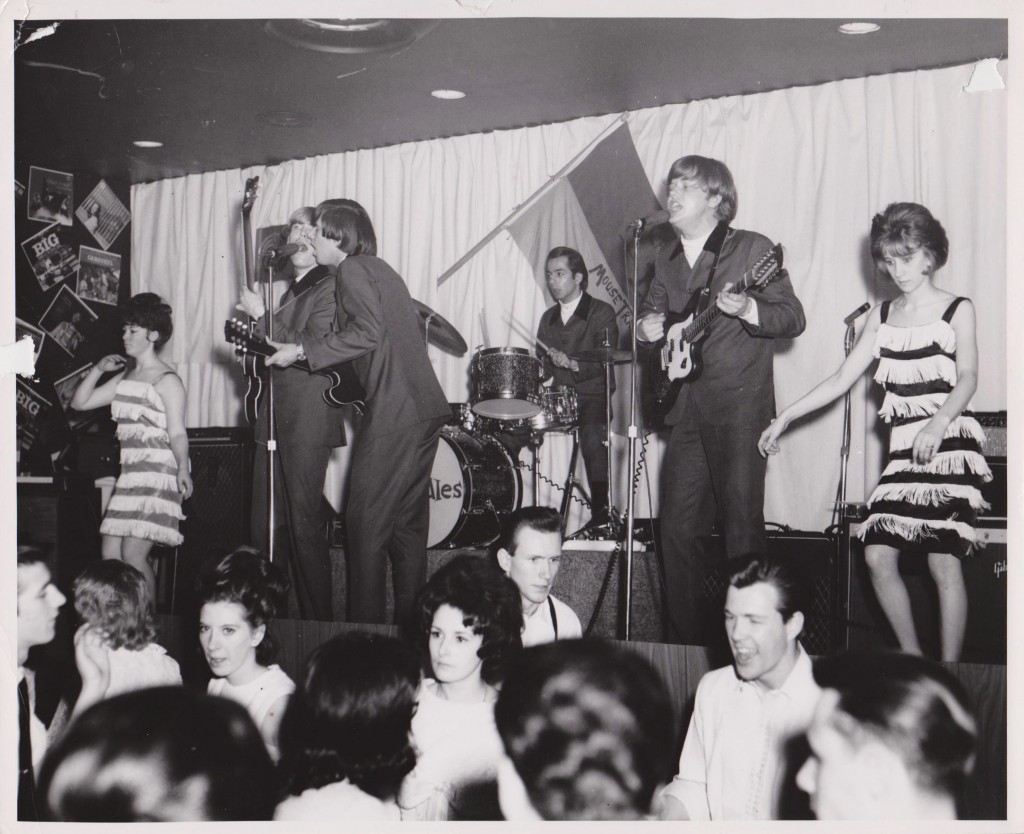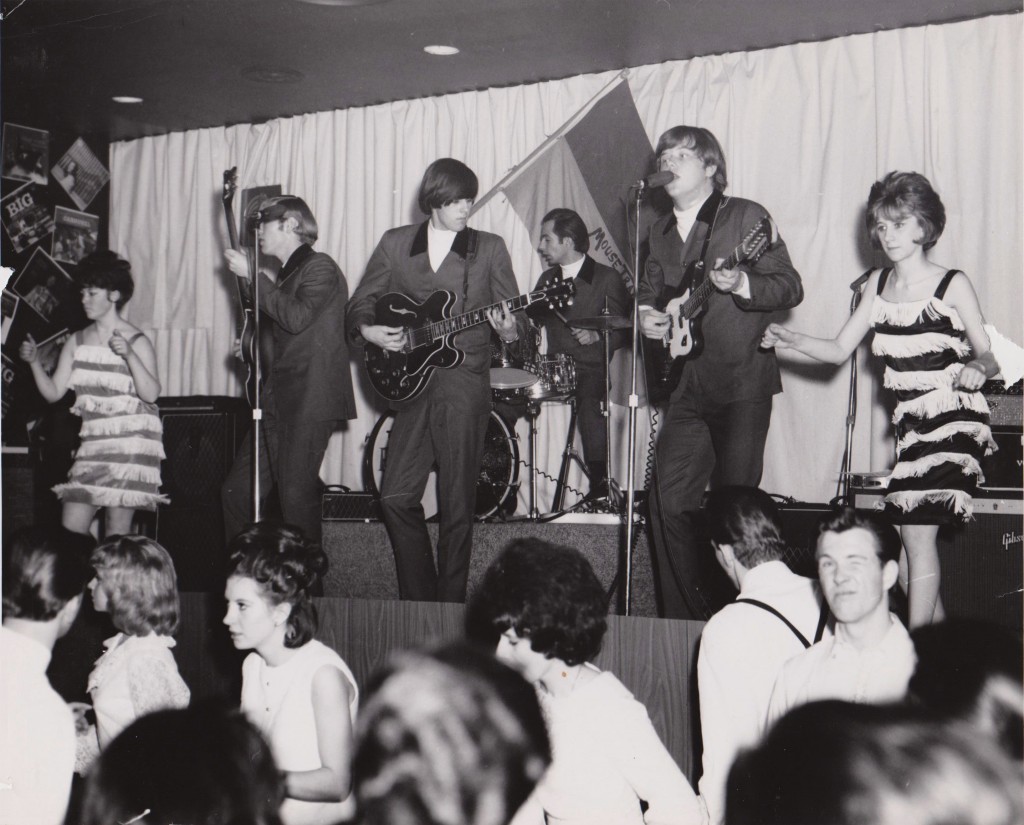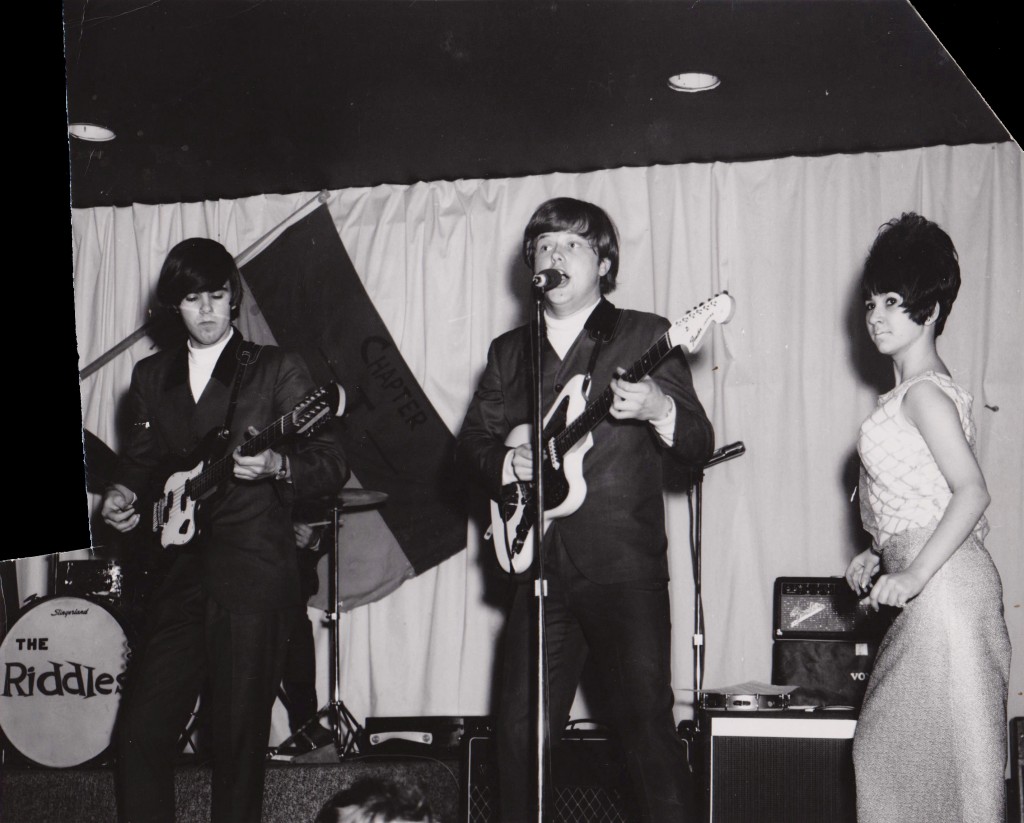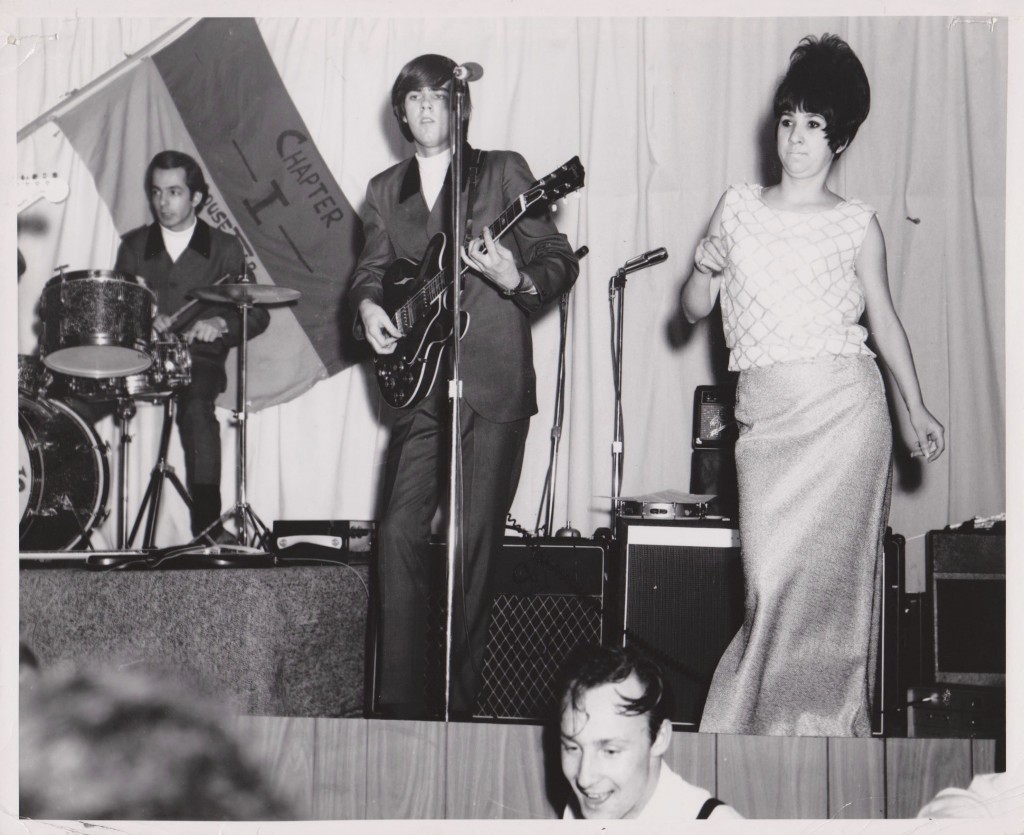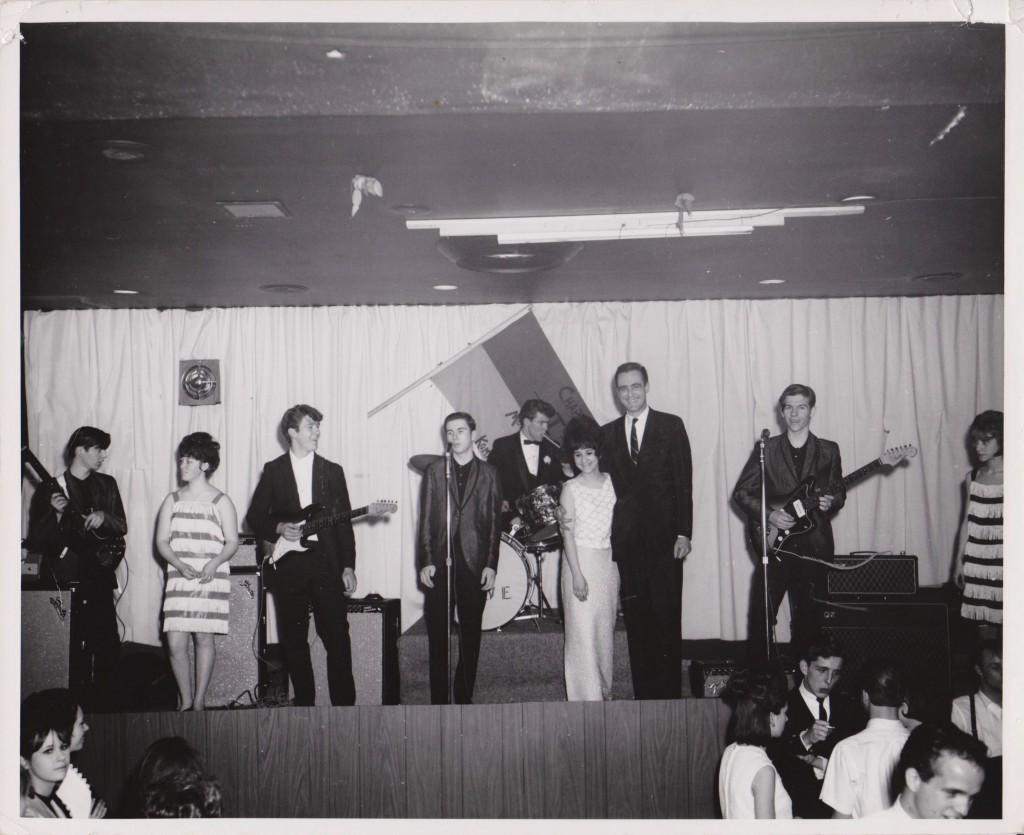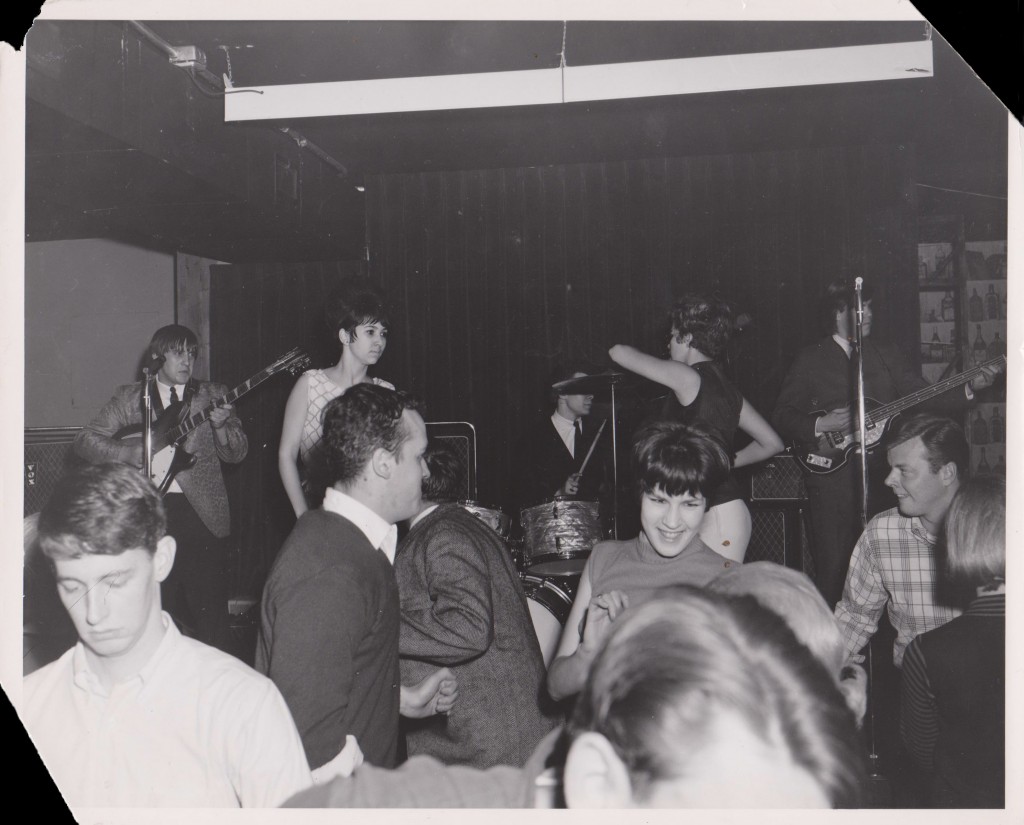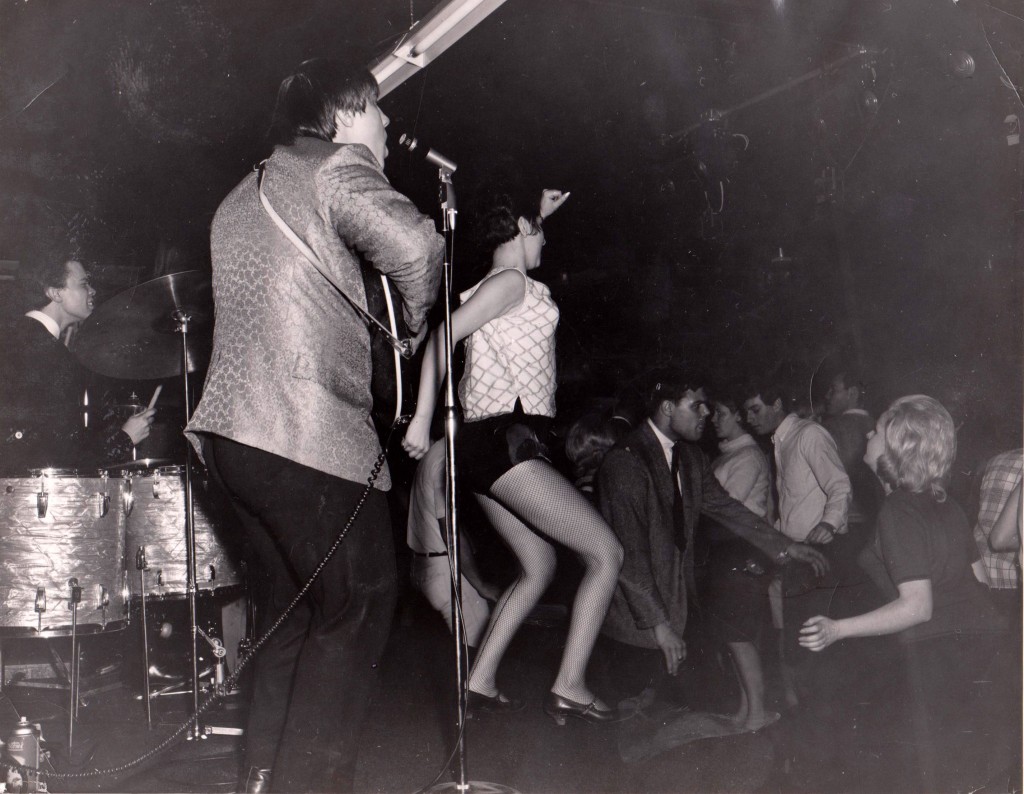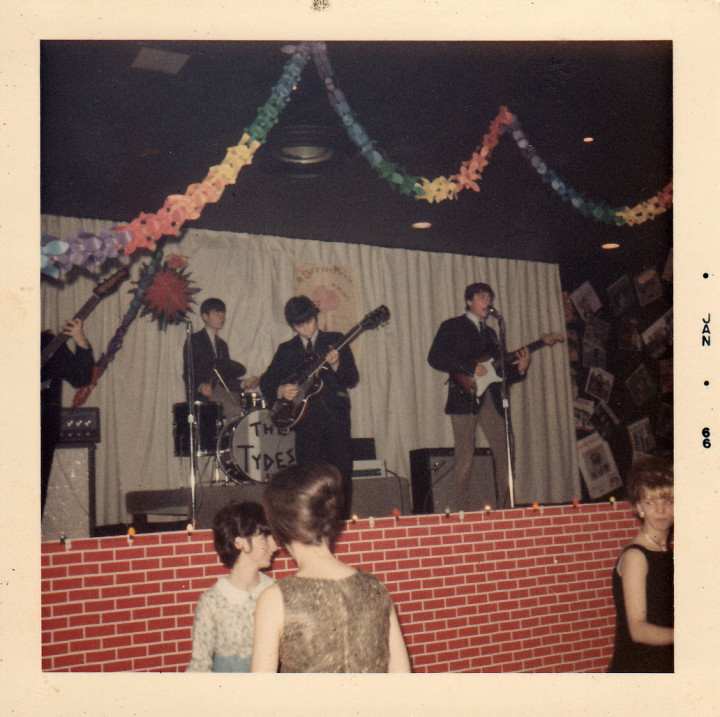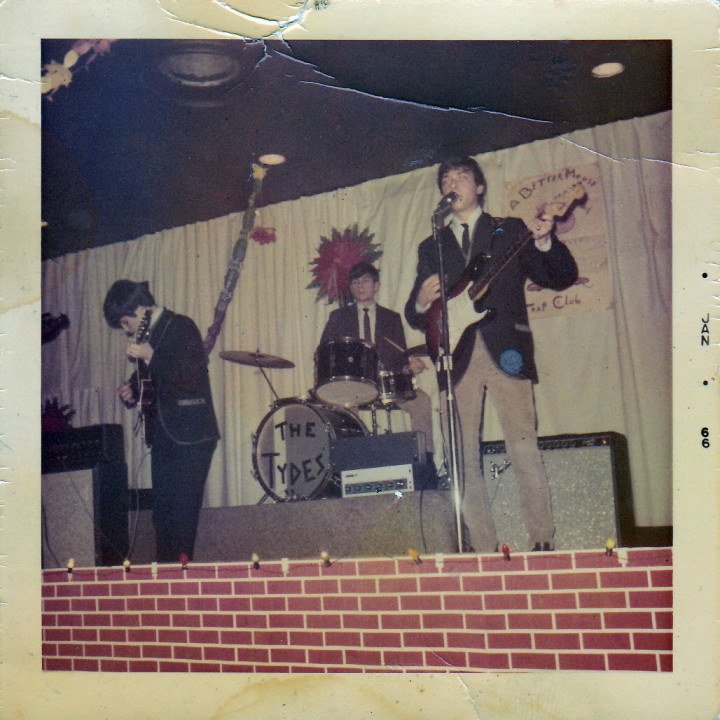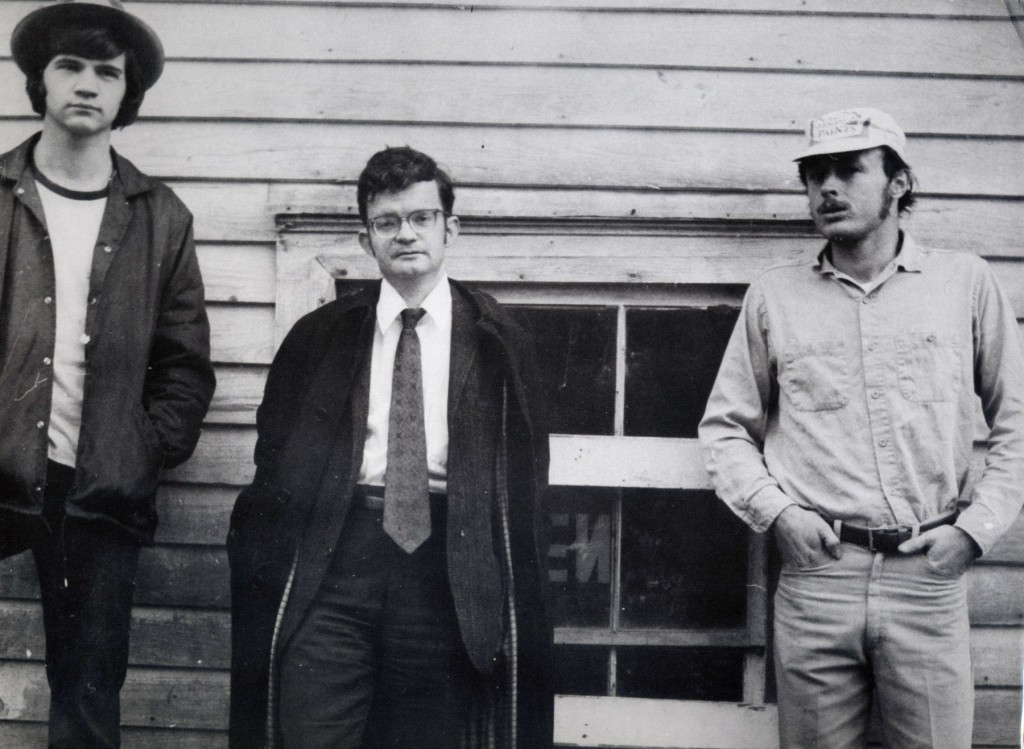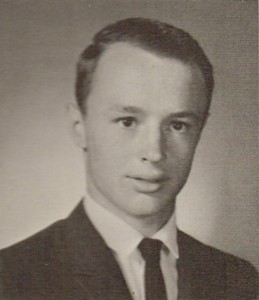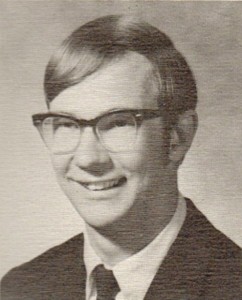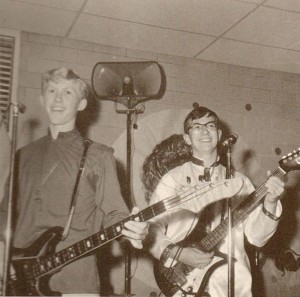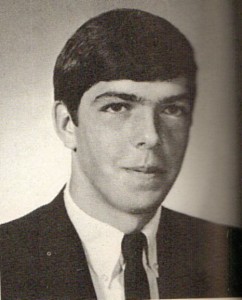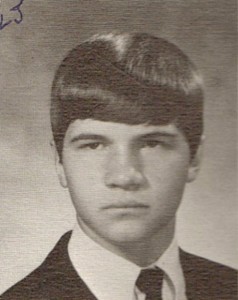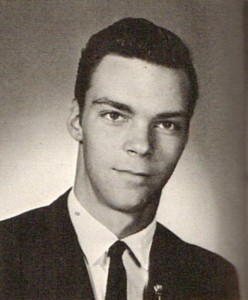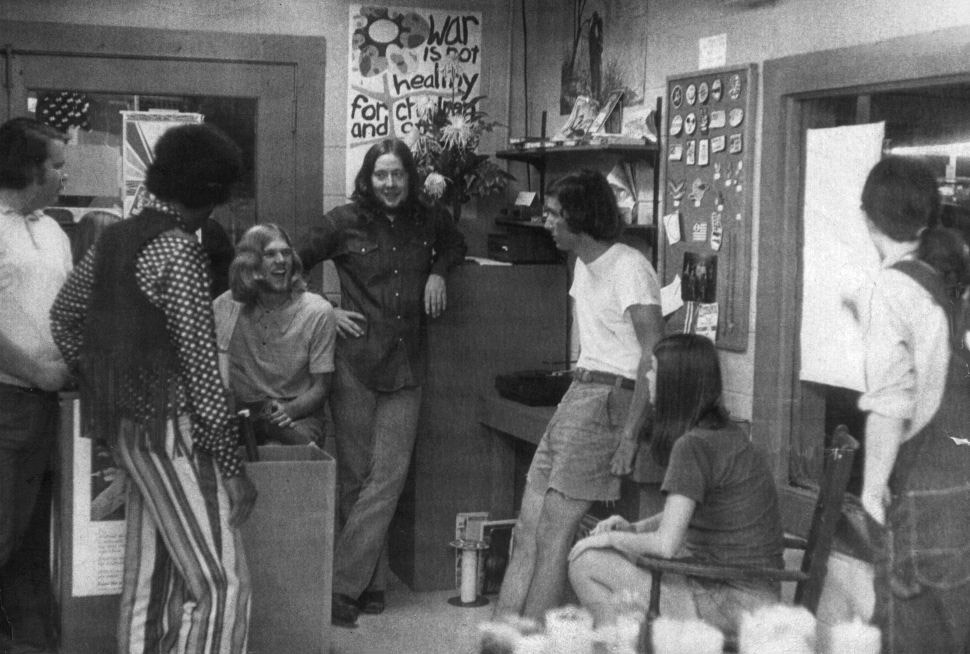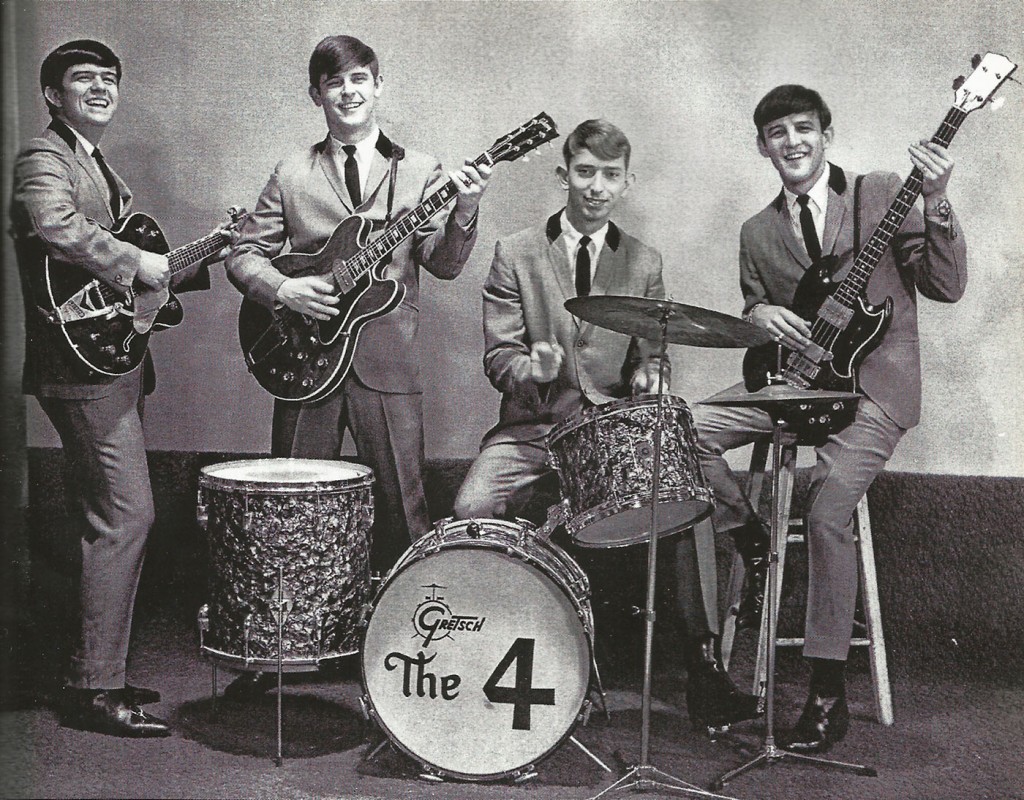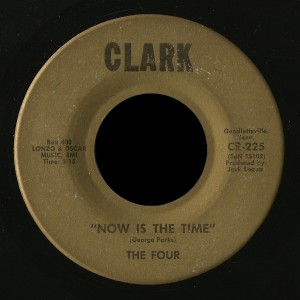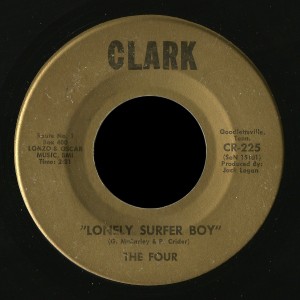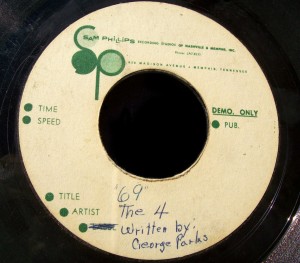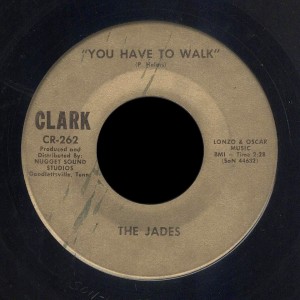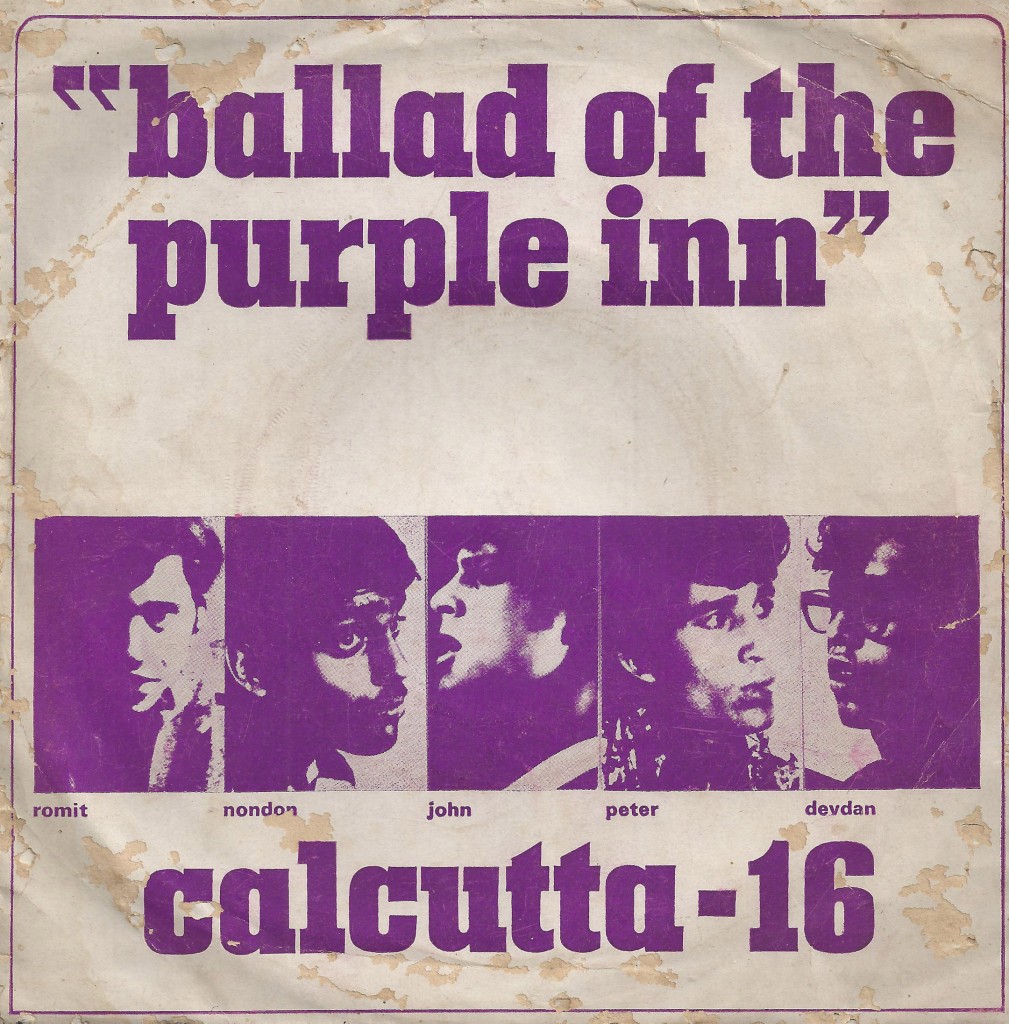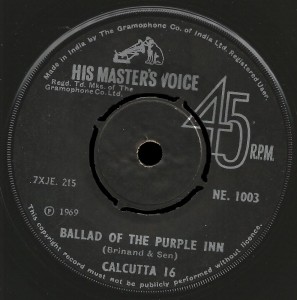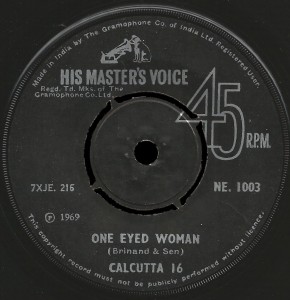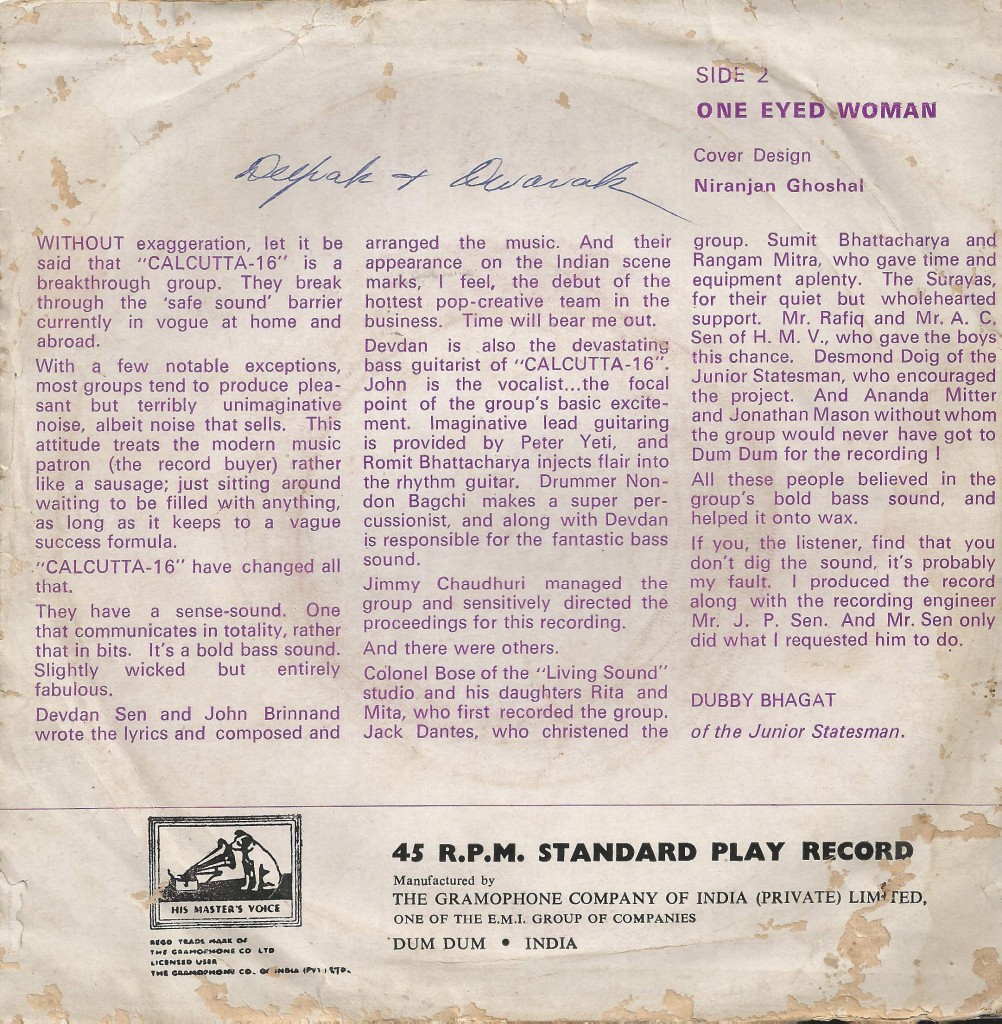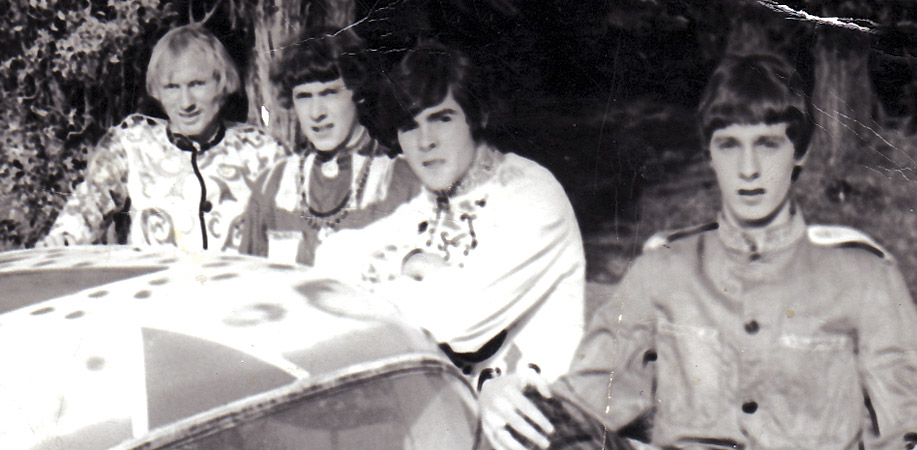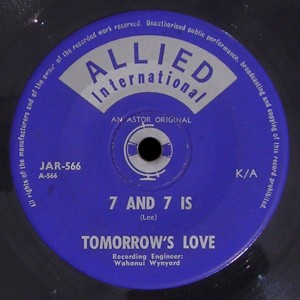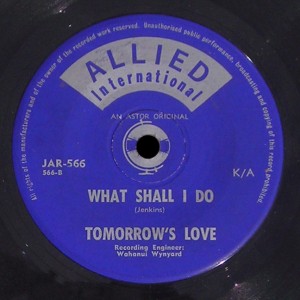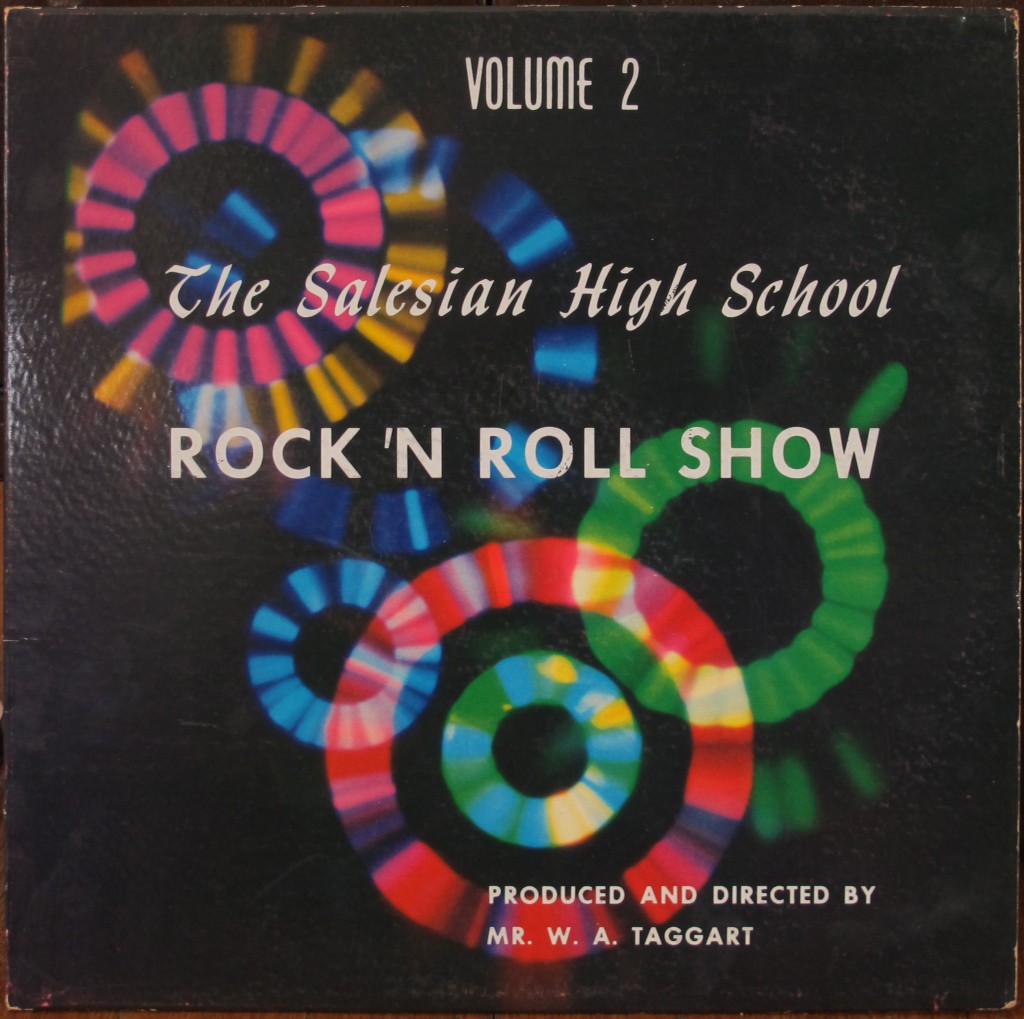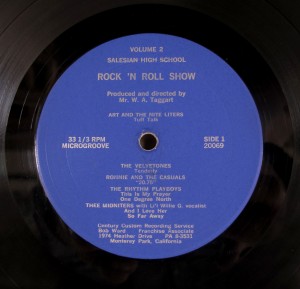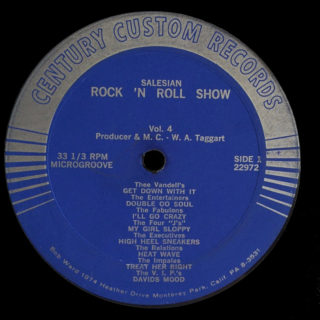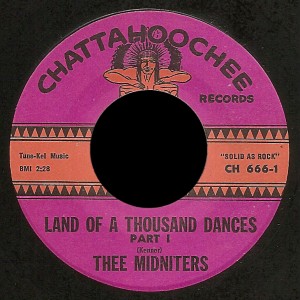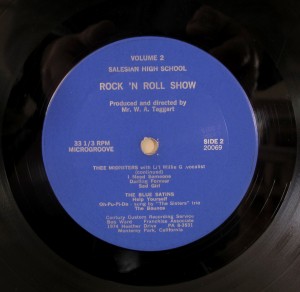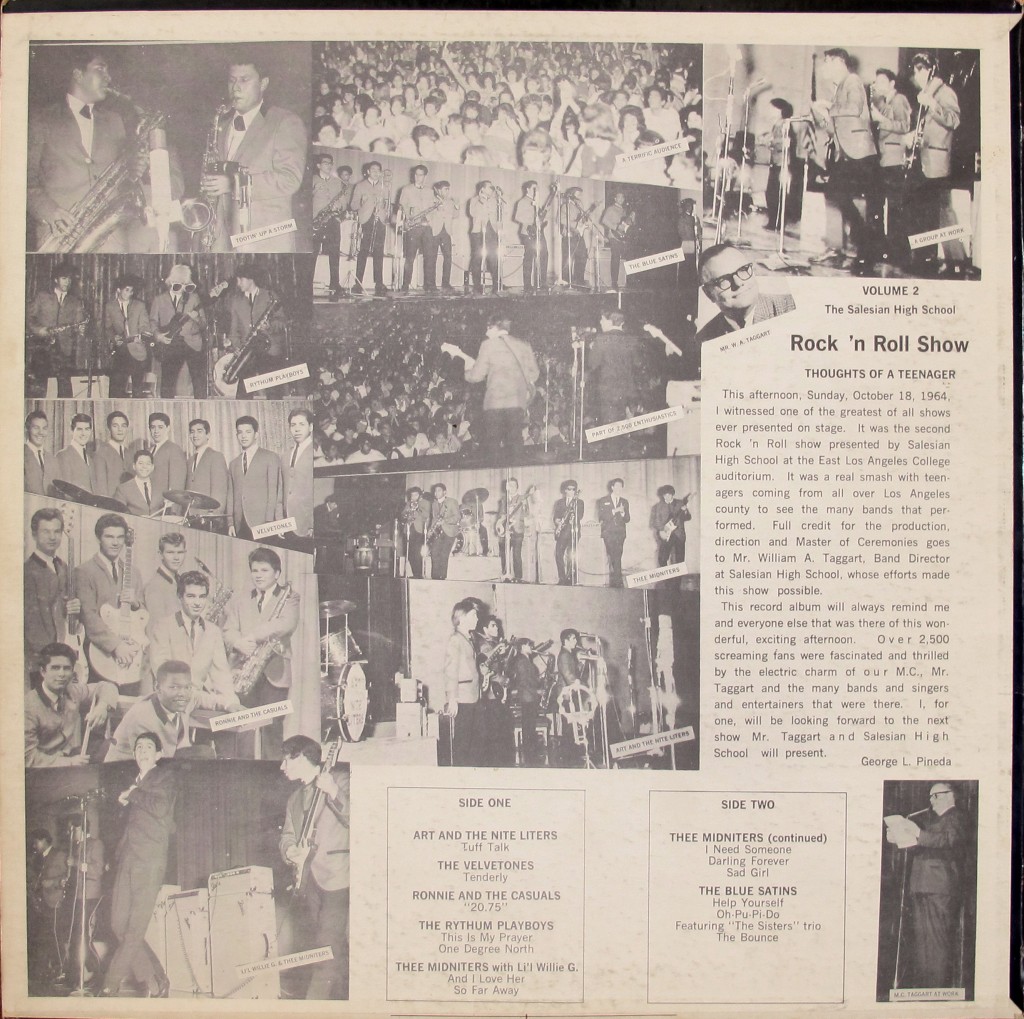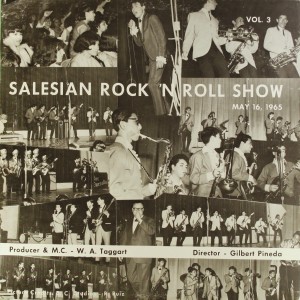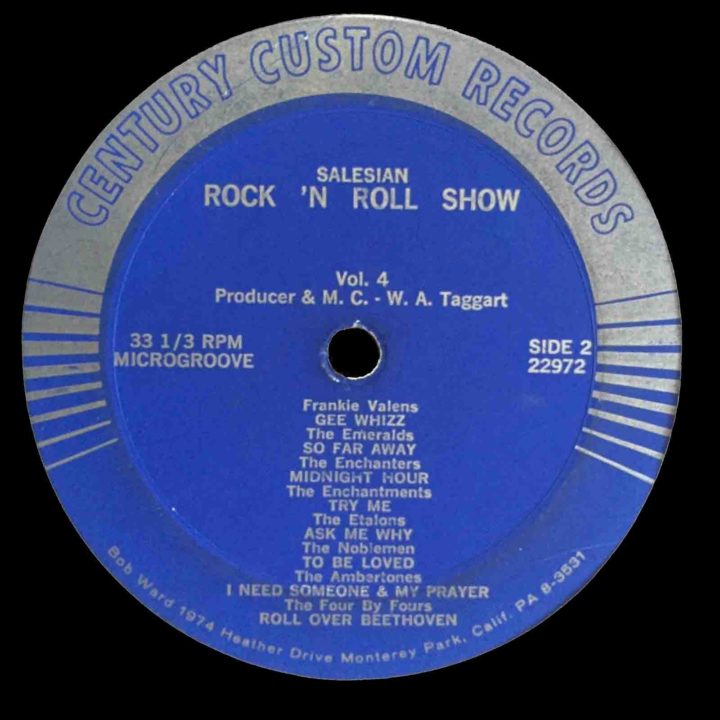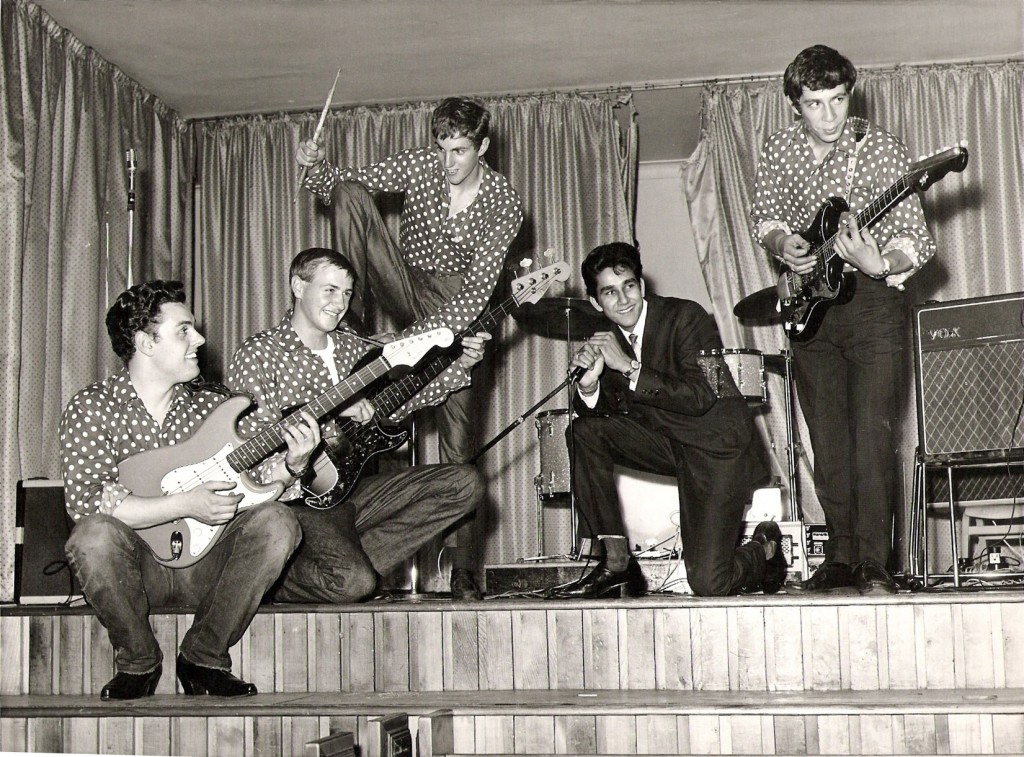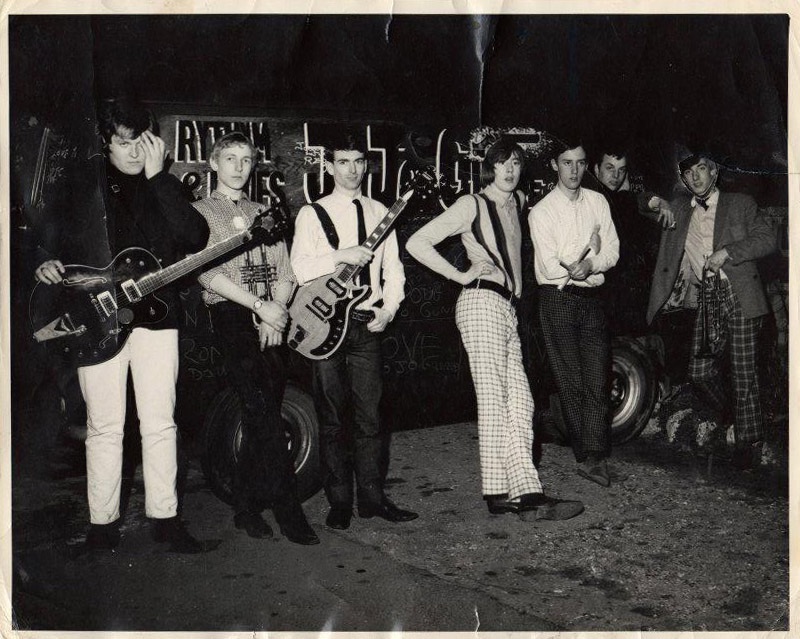
The Walton Hop at the Playhouse in Walton-on-Thames, Surrey was a teen disco started by Deniz Corday in 1958.

The music venue is reputed to have been the first disco in the UK. During 1964-1965, it was billed as the Hi-Fi Hop. The venue was billed as the Walton Hop in 1967. This is an incomplete list and I would welcome any additions
1 August 1961 – Mike Dee & The Jaywalkers
24 October 1961 – Mike Dee & The Jaywalkers
7 November 1961 – Mike Dee & The Jaywalkers
19 January 1962 – The Nibs Band
Gigs were on Saturdays and Wednesday but not every week
20 January 1962 – The Sunsets with Linda Shane, Grant Tracy and Ron Diamond
24 January 1962 – Denny & The Crescendos
10 February 1962 – Vern Rogers & The Hi-Fi’s
14 February 1962 – The Impalas

17 February 1962 – Eddy & The Chequers
24 February 1962 – Mike Cordell & The Mysteries
3 March 1962 – Steve Frances & The Counterbeats
10 March 1962 – Johnny Carr & The Bristol Cadillacs
14 March 1962 – The Guildford Rythmics
17 March 1962 – Tony West, Terry Preston & The Nite Hawks
21 March 1962 – Kris Kelly & The Cadillacs
24 March 1962 – Steve Laine & The Cannons
28 March 1962 – The Hamilton Teens
31 March 1962 – Anna Janet Carol and Tony Claidon & The Impalas
4 April 1962 – The Black Arrows
Gap until the next entry
18 April 1962 – Denny & The Crescendos
21 April 1962 – Grant Tracy & The Sunsets
23 April 1962 – Steve Laine and Terry & The Cannons
26 April 1962 – The Hamilton Teens

28 April 1962 – Duffy Power & The Syndicates
2 May 1962 – Steve Frances & The Counterbeats
5 May 1962 – Neil Christian & The Crusaders (he was ill so postponed and was replaced by Gary Brooker & The Paramounts)
Gap in gigs until next entry
19 May 1962 – Baby Bubbly & His Bubbles
23 May 1962 – Neil Christian & The Crusaders

26 May 1962 – Gary Brooker & The Paramounts

2 June 1962 – Ray Davis & The RDQ Quartette (held at Weybridge Hall as Walton Playhouse not available)
6 June 1962 – Jackie Lynton with Bob Zavier & The Jury
9 June 1962 – Bod Fields, Beverley Swain & The Diablos
11 June 1962 – Jed Stone & The Raiders
14 June 1962 – The Black Arrows
16 June 1962 – Neil Christian & The Crusaders (held at Weybridge Hall as Walton Playhouse not available)
23 June 1962 – Steve Laine and Teddy & The Cannons (held at Weybridge Hall as Walton Playhouse not available)
27 June 1962 – Pat McQueen & His Rock Combo
30 June 1962 – The Checkpoints with Colin Lloyd
3 July 1962 – Ricky Temple & The Lonely Ones (Tuesday)
7 July 1962 – Tony Claidon, Ann Wright and The Impalas (held at Weybridge Hall as Walton Playhouse not available)
11 July 1962 – Grant Tracy & The Sunsets
14 July 1962 – Brian Howard & The Silhouettes
18 July 1962 – Pete West & The East Combo
21 July 1962 – Karl Anthony & The Nomads
25 July 1962 – The Black Arrows
28 July 1962 – Steve Laine and Terry & The Cannons
1 August 1962 – Pat McQueen & His Rock Combo
4 August 1962 – Grant Tracy & The Sunsets (cancelled, not clear who replaced them)
6 August 1962 – Tony Claidon & The Impalas

11 August 1962 – Neil Christian & The Crusaders (held at Weybridge Hall as Walton Playhouse not available)
18 August 1962 – Colin Lyodd & The Checkpoints (held at Weybridge Hall as Walton Playhouse not available)
No gigs for a while

1 September 1962 – The Fleereckers
4 September 1962 – Norman Jago & The Jaguars
8 September 1962 – Brian Howard & The Silhouettes
12 September 1962 – Jackie Lynton & The Jury
15 September 1962 – The Statesmen of Sin
19 September 1962 – Vern Rogers & The Hi-Fi’s
22 September 1962 – Terry Franks & The Avalons
26 September 1962 – John Mazzi & The Clearways

29 September 1962 – Bobby Angelo & The Tuxedos with Susan Terry
3 October 1962 – Jackie Lynton with Bob Zavier & The Jury
6 October 1962 – Bobby Brown & The Barons
10 October 1962 – Grant Tracy & The Sunsets
13 October 1962 – Brian Howard & The Silhouettes
Gap until next entry
20 October 1962 – Bobby Angelo & The Tuxedos (held at Weybridge Hall as Walton Playhouse not available)
24 October 1962 – Jackie Lynton and Bobby Zavier & The Jury
27 October 1962 – Rod Price & The College Boys
31 October 1962 – Terry Franks & The Avalons
3 November 1962 – Vern Rogers & The Hi-Fi’s

9 November 1962 – Grant Tracy & The Sunsets (held at Weybridge Hall as Walton Playhouse not available)
16 November 1962 – Bobby Angelo, Susan Terry & The Tuxedos (held at Weybridge Hall as Walton Playhouse not available)
24 November 1962 – Coral Lee and Ray Fields & The Syndicates (held at Weybridge Hall as Walton Playhouse not available)
27 November 1962 – Brian Howard & The Silhouettes
1 December 1962 – John Mazzi & The Clearways
Gap until next entry
12 December 1962 – Jackie Lynton & The New Teenbeats
15 December 1962 – Vern Rogers & The Hi-Fi’s (held at Weybridge Hall as Walton Playhouse not available)
19 December 1962 – Rod Price & His College Men
22 December 1962 – Brian Howard & The Silhouettes
24 December 1962 – Bobby Angelo & The Tuxedos with Susan Terry
26 December 1962 – Jackie Lynton & The New Teenbeats
29 December 1962 – John Mazzi & The Clearways (held at Weybridge Hall as Walton Playhouse not available)
31 December 1962 – Terry Franks & The Avalons
Gigs were on Saturdays and Wednesday but not every week. There is gap until next entry
9 January 1963 – Vern Rogers & The Hi-Fi’s
12 January 1963 – John Mazzi & The Clearways

16 January 1963 – Tony Rivers & The Castaways
19 January 1963 – Vern Rogers & The Hi-Fi’s
23 January 1963 – Grant Tracy & The Sunsets
26 January 1963 – Tony Rivers & The Castaways

30 January 1963 – The Nashville Teens
2 February 1963 – Rod Price & His College Men (held at Weybridge Hall as Walton Playhouse not available)

6 February 1963 – Shane Fenton & The Fentons and Tony Rivers & The Castaways
9 February 1963 – Grant Tracy & The Sunsets
14 February 1963 – Vern Rogers & The Hi-Fi’s (Thursday)
16 February 1963 – Terry Franks & The Avalons
23 February 1963 – John Mazzi & The Clearways
There is a gap until the next entry
2 March 1963 – Rod Price & His College Men

6 March 1963 – Gene Vincent & The British Blue Caps and The Hi-Fi Nits and Jackie & Fiona

9 March 1963 – Pauline Martin and Paul Dean & The Searchers
16 March 1963 – Tony Rivers & The Castaways
20 March 1963 – Frank Kelly & The Hunters
23 March 1963 – Pete West and Susan Wayne & The Embers
30 March 1963 – Coral Lee and Ray Fields & The Syndicates (held at Weybridge Hall as Walton Playhouse not available)
6 April 1963 – Tony & The Packabeats
11 April 1963 – Pat McQueen & His Rock Combo (Thursday)
13 April 1963 – John Mazzi & The Clearways and The Hi-Fi Nits
15 April 1963 – Grant Tracy & The Sunsets (Monday)
20 April 1963 – Pauline Martin and Pete Dean & The Searchers
27 April 1963 – Lee Faber & The RTJ Combo (held at Weybridge Hall as Walton Playhouse not available)
4 May 1963 – The Strollers Plus Two and The Hi-Fi Nits

10 May 1963 – Rod Price & His College Men (Friday) (held at Weybridge Hall as Walton Playhouse not available) Replaced by Jeff Curtis & The Flames
18 May 1963 – Vern Rogers & The Hi-Fi’s and Fiona and Jackie
25 May 1963 – Terry Franks & The Avalons (held at Weybridge Hall as Walton Playhouse not available)
1 June 1963 – Tony Holland & The Packabeats
3 June 1963 – Vern Rogers & Hi-Fi’s (Monday)
8 June 1963 – Johnny Dee & The Limelighters
15 June 1963 – John Mazzi & The Clearways
22 June 1963 – Vern Rogers & The Hi-Fi’s
29 June 1963 – John Mazzi & Clearways
6 July 1963 – Tony Rivers & The Castaways
13 July 1963 – Rod Price & His College Men

20 July 1963 – Jeff Curtis & The Flames
27 July 1963 – Dave Anthony & The Druids

3 August 1963 – The Strollers
5 August 1963 – The Limelights
10 August 1963 – Coral Lee and Ray Fields & The Syndicates
17 August 1963 – Terry Franks & The Avalons (replaced by Eddy & The Chequers)
24 August 1963 – Lee Allan & The Scepters
31 August 1963 – Dave Anthony & The Druids
6 September 1963 – Tony Rivers & The Castaways (Friday) (replaced by Tony Holland & The Packabeats)
14 September 1963 – The Hi-Fi’s
21 September 1963 – John Mazzi & The Clearways

25 September 1963 – Shane Fenton & The Fentons (Wednesday)
28 September 1963 – Dave Dee & The Moquettes
5 October 1963 – Grant Tracy & The Sunsets
12 October 1963 – Lee Allan & The Scepters
19 October 1963 – Tony Holland & The Packabeats
26 October 1963 – The Wanderers
2 November 1963 – The Druids
9 November 1963 – Jackie Lynton & The Teenbeats
16 November 1963 – The Mustangs (held at Weybridge Hall as Walton Playhouse not available)
23 November 1963 – Tony Rivers & The Castaways (held at Weybridge Hall as Walton Playhouse not available)

30 November 1963 – Jeff Curtis & The Flames
Got gaps until next gig
21 December 1963 – Neil Christian & The Crusaders
24 December 1963 – John Mazzi & The Clearways

26 December 1963 – Tony Holland & The Packabeats
27 December 1963 – Vern Rogers & The Hi-Fi’s

28 December 1963 – Brian Diamond & The Cutters
31 December 1963 – The Druids
Just appears to be gigs on Saturdays in 1964
3 January 1964 – Lee Allan & The Scepters
11 January 1964 – The Moquettes (held at Weybridge Hall as Walton Playhouse not available)

18 January 1964 – The Flintstones
25 January 1964 – The Roof Raisers
1 February 1964 – Pete Nelson & The Travellers
8 February 1964 – The Hi-Fi’s
No gig on 15 February 1964
22 February 1964 – Tony Rivers & The Castaways and The Hop Mimers
29 February 1964 – Guitars Incorporated
7 March 1964 – The Roof Raisers
14 March 1964 – The Druids
21 March 1964 – Lee Allan & The Scepters
26 March 1964 – The Moquettes

28 March 1964 – The Outlaws and The Hop Mimers
30 March 1964 – Wainwright’s Gentlemen
4 April 1964 – The Druids
11 April 1964 – Tony Holland & The Packabeats (held at Weybridge Hall as Walton Playhouse not available)

18 April 1964 – The Limelights
No gig on 25 April
28 April 1964 – Tony Rivers & The Castaways (held at Weybridge Hall as Walton Playhouse not available)
2 May 1964 – Peter’s Faces
9 May 1964 – The Hi-Fi’s (held at Weybridge Hall as Walton Playhouse not available)

16 May 1964 – The Trends
18 May 1964 – The Moquettes (Monday)

23 May 1964 – Wainwright’s Gentlemen
30 May 1964 – Dana Laine and Lee Tracy & The Tributes (held at Weybridge Hall as Walton Playhouse not available)
2 June 1964 – Peter’s Faces (Tuesday)
6 June 1964 – The Druids

9 June 1964 – Wainwright’s Gentlemen (Tuesday)
13 June 1964 – The Prestons (held at Weybridge Hall as Walton Playhouse not available)
16 June 1964 – The Soul Representatives (Tuesday)
20 June 1964 – Mike Shannons & The Strangers

27 June 1964 – Wainwright’s Gentlemen
4 July 1964 – The Chances (held at Weybridge Hall as Walton Playhouse not available)

11 July 1964 – The Nashville Teens
18 July 1964 – Peter’s Faces
25 July 1964 – The Southern Sounds

1 August 1964 – The Birds (Ron Wood on guitar)
3 August 1964 – Peter’s Faces

8 August 1964 – The Grebbles
15 August 1964 – The T-Bones
22 August 1964 – The Southern Sounds
29 August 1964 – Peter’s Faces and Jackie Lynton
5 September 1964 – The Birds
12 September 1964 – The Druids

19 September 1964 – The Tridents (Jeff Beck’s band)
26 September 1964 – The T-Bones
3 October 1964 – The Druids
10 October 1964 – The Herd (replaced by The Paramounts)
17 October 1964 – The Rebounds
24 October 1964 – Tony Rivers & The Castaways
31 October 1964 – Peter’s Faces

7 November 1964 – The Tridents
14 November 1964 – The Druids
17 November 1964 – Rhubarb Freshers (Tuesday)
21 November 1964 – Tony Rivers & The Castaways
24 November 1964 – The Aztecs (Tuesday)
28 November 1964 – The Bootleggers
1 December 1964 – The Hustlers (Tuesday) (held at Weybridge Hall as Walton Playhouse not available)
4 December 1964 – The Herd (held at Weybridge Hall as Walton Playhouse not available)
8 December 1964 – The Empty Vessels (Tuesday) (held at Weybridge Hall as Walton Playhouse not available)
12 December 1964 – Peter’s Faces (held at Weybridge Hall as Walton Playhouse not available)
15 December 1964 – Devil’s Disciples (Tuesday)
19 December 1964 – The Pagans
24 December 1964 – Grant Tracy & The Sunsets

26 December 1964 – The Tridents
31 December 1964 – The Druids
There were gaps during 1965 due to the venue not being used for music
2 January 1965 – The Birds

12 January 1965 – The Moonrakers

16 January 1965 – Peter’s Faces

23 January 1965 – The Herd

26 January 1965 – The Legends

30 January 1965 – Wainwright’s Gentlemen (Ian Gillan was lead singer by now)
2 February 1965 – The Strays
6 February 1965 – The Tridents
9 February 1965 – The Cosmic Sounds
13 February 1965 – Grant Tracy & The Sunsets
23 February 1965 – The Missing Links

27 February 1965 – Dave & The Strollers
2 March 1965 – The Ones
6 March 1965 – The Tridents (this was the band’s first gig after Jeff Beck left to join The Yardbirds and was performed as a trio)
9 March 1965 – The Road Agents

13 March 1965 – The Birds

16 March 1965 – Finders Keepers

20 March 1965 – The Five Dimensions

23 March 1965 – Them
27 March 1965 – The Herd

30 March 1965 – The Bad Boys
3 April 1965 – The Cosmic Sounds

15 April 1965 – The Hero (This could be a missprint and might be The Herd)
Walton Playhouse closed at some point in late April/early May 1965 due to a fire that caused extensive damage. Walton Playhouse re-opened for music on 29 October 1966

29 October 1966 – Flatop and The Soul System
1 November 1966 – The Impalas
5 November 1966 – The Courtelles

8 November 1966 – The Iveys (evolved into Badfinger)
12 November 1966 – Tuesday’s Children

15 November 1966 – The Loving Kind
19 November 1966 –The Dominos
No gigs on 22 and 26 November
29 November 1966 – The Coloured Raisins
3 December 1966 – The Iveys
No gigs on 6 and 10 December

13 December 1966 – The New Downliners Sect
17 December 1966 – The Embers
20 December 1966 – Syd’s Crowd
24 December 1966 – Rob Chance & The Chances R
26 December 1966 – The Coloured Raisins

27 December 1966 – The Summer Set
31 December 1966 – Niti Rossi and Mike Stuart Span

10 January 1967 – The New Mojo Band (The New Mojos)
13 January 1967 – Winston’s Fumbs
17 January 1967 – Norman & The Tek-Neeks (ex-Tornados)
24 January 1967 – Derek Savage Foundation

28 January 1967 – The Nashville Teens
31 January 1967 – The Embers
4 February 1967 – The Condors
7 February 1967 – Winston’s Thumbs
11 February 1967 – Jackie Lynton, Norman Hale & The Package

14 February 1967 – The Iveys
18 February 1967 – Derek Savage Foundation

21 February 1967 – The Mojos
25 February 1967 – Denise Scott & The Soundsmen
28 February 1967 – Mike Raynor & The Condors
4 March 1967 – The Coloured Raisins
7 March 1967 – The Embers
14 March 1967 – The Embers

18 March 1967 – The Bunch
21 March 1967 – Derek Savage Foundation
23 March 1967 – The Coloured Raisins
25 March 1967 – The Medievals
27 March 1967 – Mike Stuart Span

1 April 1967 – The Army (Steve Priest, pre-Sweet on bass)
11 April 1967 – The Iveys

15 April 1967 – The Mojos
18 April 1967 – Sean Buckely Big Set
21 April 1967 – The Seychells (held at Hersham)
No gigs at the Walton Hop on 22, 25 and 29 April. The hall is not available
29 April 1967 – The Flies (held at Hersham)
2 May 1967 – The Farm
6 May 1967 – The Jaybirds
13 May 1967 – The Ministry of Sound
16 May 1967 – The Drag Set
20 May 1967 – The Bunch
23 May 1967 – The Flies
27 May 1967 – The Shinn
29 May 1967 – Mike Stuart Span (Bank holiday Monday)
3 June 1967 – The Courtells
6 June 1967 – The Jaybirds
10 June 1967 – The Happy Story

13 June 1967 – The Shell Shock Show
17 June 1967 – The Iveys
20 June 1967 – The Klooks
There is a gap after this
8 July 1967 – Soul Tonas

14 July 1967 – The Shell Shock Show

22 July 1967 – The Gods
29 July 1967 – The Human Instinct
5 August 1967 – Mike Stuart Span
12 August 1967 – The Tiles Big Band
19 August 1967 – The Flies
26 August 1967 – The Drag Set

28 August 1967 – The Flies (Bank holiday Monday)
2 September 1967 – Mike Raynor & The Condors
9 September 1967 – Modes Mode
16 September 1967 – Mike Stuart Span
23 September 1967 – The Embers
26 September 1967 – The Drifters, The Flies and The Mover
7 October 1967 – The All Nite Workers
14 October 1967 – No band this week
21 October 1967 – Gentle Madness
28 October 1967 – Dr Marigold’s Prescription

4 November 1967 – Coletrain Union
11 November 1967 – The Inspiration
14 November 1967 – The Human Instinct

18 November 1967 – Floribunda Rose (John Kongos’s band)
25 November 1967 – No band this week
28 November 1967 – Force Four
2 December 1967 – Lemon Line
9 December 1967 – No band this week

12 December 1967 – The All Nite Workers
16 December 1967 – Jo Jo Gunne

19 December 1967 – The Doves
26 December 1967 – The Flies (and possibly The Doves but needs confirmation)

30 December 1967 – Mike Stuart Span
9 January 1968 – Jo Jo Gunne

13 January 1968 – The Army
16 January 1968 – Force Four
20 January 1968 – The Human Instinct
24 January 1968 – Missing entry
27 January 1968 – The All Nite Workers
30 January 1968 – Dr Marigold’s Prescription
3 February 1968 – Alexander Bell & The Flies (Just back from Denmark and replaced Cymbaline)
6 February 1968 – The Doves
10 February 1968 – The Human Instinct and The Mover
13 February 1968 – Jo Jo Gunne

17 February 1968 – Jon
20 February 1968 – The All Nite Workers
24 February 1968 – Kristen Young & The Reflections
27 February 1968 – Cymbaline
2 March 1968 – Dr Marigold’s Prescription
No gigs on 5 and 9 March
12 March 1968 – Mike Raynor & The Condors
No Saturday gigs until 30 March so no gig on 16 March
19 March 1968 – The All Nite Workers
No gig on 23 March
26 March 1968 – Cymbaline
30 March 1968 – Jo Jo Gunne
6 April 1968 – Extreme Sound
11 April 1968 – Jo Jo Gunne
13 April 1968 – Cymbaline
15 April 1968 – The All Night Workers

20 April 1968 – The Doves
Looks like gigs on 23, 27 and 30 April
4 May 1968 – The Embers
Looks like no gigs on 7, 11 and 14 May

18 May 1968 – The Penny Peeps (Martin Barre, pre-Jethro Tull on guitar)
Looks like no gigs on 21, 25 and 28 May
1 June 1968 – Jo Jo Gunne
4 June 1968 – The Embers
8 June 1968 – The Onyx
No gig on 11 June
15 June 1968 – Extreme Sound
No gig on 18 June
22 June 1968 – Mike Stuart Span
No gigs on 25 and 29 June
No gig on 2 July
6 July 1968 – The Greatest Show on Earth
13 July 1968 – Mike Raynor & The Condors
No gig on 16 July
20 July 1968 – Cymbaline
No gig on 23 July

27 July 1968 – The Groop (from Australia) and Honey
No gig on 30 July

3 August 1968 – Clive Barrow Group (future All Night Workers lead singer)
No gig on 6 August
10 August 1968 – Mike Raynor & The Condors
No gig on 13 August
17 August 1968 – The Embers and Honey
No gig on 20 August

24 August 1968 – Alexander Bell & The Flies
No gig on 27 August
31 August 1968 – Jo Jo Gunne
2 September 1968 – The All Nite Workers
7 September 1968 – Jo Jo Gunne
No gigs on 10, 14 and 17 September
21 September 1968 – The Late
No gig on 24 September
28 September 1968 – Combustion
No gig on 1 October

5 October 1968 – The Nerve
No gig on 8 October
12 October 1968 – Bobby Johnson & The Atoms
Looks like no gigs on 15, 19 and 22 October
26 October 1968 – The All Nite Workers
No gig on 29 October
2 November 1968 – Bobby Johnson & The Atoms
No gig on 5 November
9 November 1968 – Combustion
No gig on 12 November
16 November 1968 – Nerve
No gig on 19, 23 and 26 November
30 November 1968 – The Coloured Raisins
No gigs on 3, 7 and 10 December
14 December 1968 – Jo Jo Gunne
No gig on 17 December
21 December 1968 – The Explosion with Winston T (most likely Watson T Brown & The Explosive)

24 December 1968 – Jo Jo Gunne

26 December 1968 – Rick ‘N’ Beckers
28 December 1968 – The Sky (formerly Mike Raynor & The Condors)

31 December 1968 – The Cat Road Show starring US Flatop
No gig on Saturday, 4 January 1969. Also Tuesday shows given up for DJ
11 January 1969 – The Youngblood
18 January 1969 – The Explosive
25 January 1969 – Canterbury Tales
1 February 1969 – Kingsize Keen Show
8 February 1969 – The Flares
No gig on Saturday, 15 February
23 February 1969 – The Nite People
1 March 1969 – The Youngblood

8 March 1969 – Demon Fuzz
No gig on Saturday, 15 March
22 March 1969 – Watson T Brown & The Explosive

29 March 1969 – Spectrum
3 April 1969 – Canterbury’s Tales
5 April 1969 – Simon K & The Meantimers
7 April 1969 – The All Nite Workers (Clyde Barrow now on lead vocals)
No gigs now until the next date
3 May 1969 – The Youngblood
No gigs now until the next date

31 May 1969 – The Red Squares
7 June 1969 – The Pavement

14 June 1969 – The Onyx

21 June 1969 – The Sky
28 June 1969 – Spectrum
5 July 1969 – The Sweet
12 July 1969 – The Swamp

19 July 1969 – The Embers

26 July 1969 – Simon K & The Meantimers
2 August 1969 – The She Trinity
9 August 1969 – The Sugar
16 August 1969 – The Chimera
23 August 1969 – Pinkerton’s Assorted Colours
30 August 1969 – Canterbury Tales
6 September 1969 – Simon K & The Meantimers
13 September 1969 – Cool Combination
20 September 1969 – Sonority
27 September 1969 – The Cats
4 October 1969 – The Pylots
11 October 1969 – Archimedes Principle
18 October 1969 – Timebox
No gig on Saturday, 25 October
1 November 1969 – Black Velvet
No gig on Saturday, 8 November
15 November 1969 – Orange Rainbow
No gig on Saturday, 22 November
29 November 1969 – Simon K & The Meantimers
No gigs until the next one
13 December 1969 – Information
20 December 1969 – Lucas (from Mike Cotton Sound) and The Soul Sisters

24 December 1969 – Mike Raynor & The Sky
26 December 1969 – John James & The Swamp
27 December 1969 – Chimera

31 December 1969 – Simon K & The Meantimers
There don’t appear to be any gigs for the first half of 1970
All gigs were sourced from the Woking Herald except Mike Dee & The Jaywalkers (Brian Mansell) and Floribunda Rose (Jack Russell)
Copyright © Nick Warburton. All Rights Reserved. No part of this article may be reproduced or transmitted in any from or by any means, without prior permission from the author.



